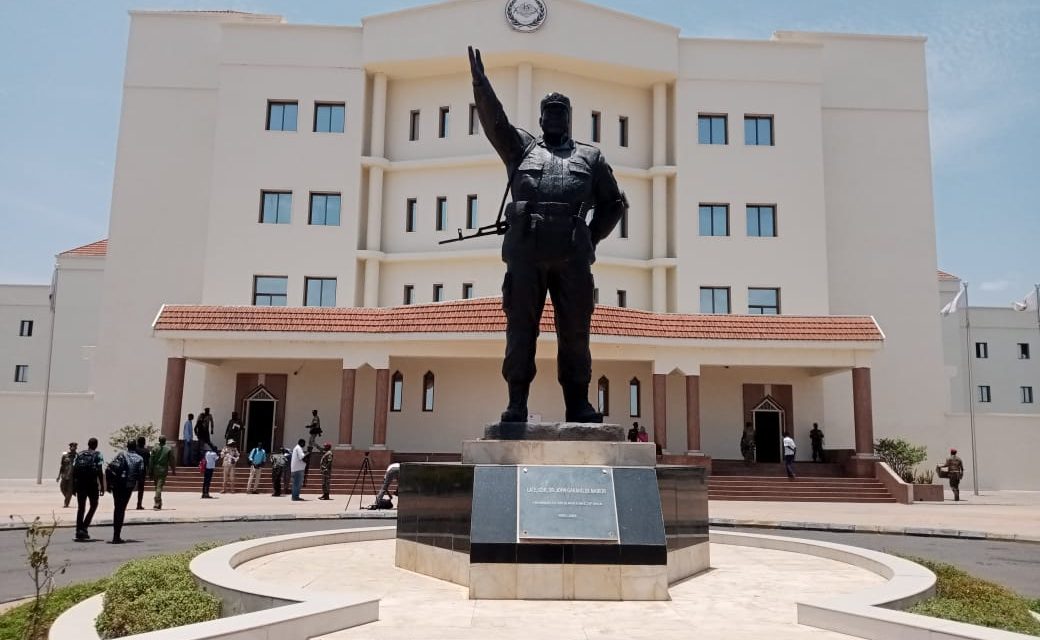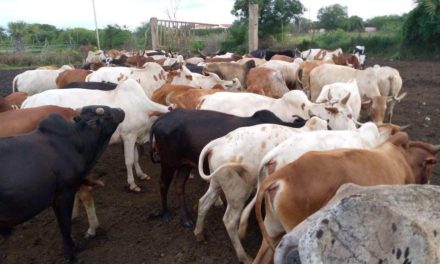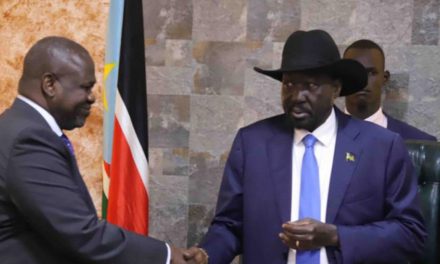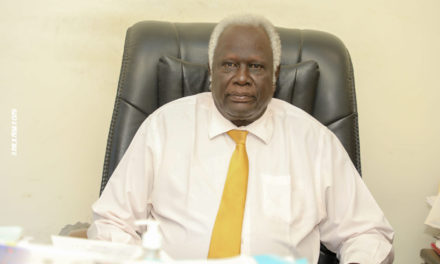
Peace Agreement: Chapter II, too expensive to implement, Gov’t

By David Mono Danga in Washington, Adia Jildo in Juba.
Government spokesperson and Information Minister, Michael Makuei says Chapter Two of the Peace Agreement is the most difficult to implement because of the cost of its requirements.
“It is the most expensive, it has so many requirements and so many proceedings to be conducted,” Makuei said.
“We don’t have all the necessary required resources for funding all this process.” He added.
South Sudan’s holdout group, the National Salvation Front or NAS refused to sign the 2018 Peace Agreement. The leader of NAS, Gen. Thomas Cirilo had said in a press statement that the constitution-making process and preparations for the 2023 elections would prolong the status quo and add another driver of conflict in the country.
General Cirilo refused to accept any peace agreement that, in his words, “undermines the people’s fundamental human rights, subjects the people to discrimination based on ethnic supremacy, and shatters the social fabric of the society,” the statement partly read.
Speaking to young people on a Twitter Space held in late June Rajab Mohandis, Executive Director of the Organization for Responsive Governance said Gen. Cirilo’s predictions might come true, adding it is incumbent to those signatories to the agreement to prove Thomas Cirilo and the holdout groups wrong.
“They could prove them wrong by implementing the agreement. For example, the agreement says “seize hostilities, protect civilians, improve the humanitarian conditions, what’s wrong with doing some of these things?” he asked.
South Sudan’s Minister of Information and the government’s spokesperson, Michael Makuei told a panel during a special edition of the VOA’s Straight Talk Africa program in Juba that the partners to the 2018 peace agreement have made what he called significant progress.
“Chapter two is the most expensive, it has so many requirements and so many proceedings to be conducted,” Makuei said noting that g, the graduation of the unified forces has been made even worse by the UN security arms embargo on South Sudan.
But Lam Akol, leader of the National Democratic Movement says the R-TGoNU is using delaying tactics to stay in power. Akol says South Sudan cannot conduct elections when people’s rights are being violated.
“All the freedoms, whether for the parties, the journalists or for individuals’ freedom of movement, people must be free to move around the country,” Akol said.
“The security should be enabling rather than obstructing, that’s why we insist there must be new security operatives in the country that’s loyal to the country, not loyal to individuals or political groups,” he added.
South Sudan’s Minister for Peace Building Stephen Par Kuol told the same panelists that his group, the SPLIO, is not afraid of participating in elections which is why he acknowledges that they have worked towards implementing some chapters of the agreement.
“We have maintained this permanent ceasefire because transitional security arrangement is not only the graduation of forces. It’s cantonment of forces, assembling of forces, barracking the forces, (and) unifying the forces training them together. We have accomplished this in our training centers, we are left only with the graduation of forces,” Kuol said.
Wani Michael, former executive director of the okay Africa Foundation who fled to exile last year and co-hostedTwitterter space discussion in late June says there’s no freedom of speech in South Sudan
“There’s no freedom of the media, the media has been censored (and) some of the civil society activists had to leave the country because they’ve been hunted.
“If you’re talking about elections, the environment ought to be conducive, the media needs to be independent (and) nobody has to be detained. We saw there’s increased harassment and detentions of journalists,” Michael said.
Lam Akol believes it’s inevitable that the R-TGoNU will CONTINUE TO FACE CHALLENGES IN implementing the 2018 peace agreement by the end of the transitional period and insists that the next discussions after February 2023 should include all the holdout groups like Thomas Cirilo and Paul Malong.
But Makuei dismisses this saying these are views of disgruntled politicians and activists who do not know what to say.
“The activists are hate agitators, they’re people who are not ready to listen and argue out issues so please if you are asking me because of the activists’ opinion, this is not time for activism. My advice to the activists is to listen and do the right thing, (and) not to negatively agitate for no reason,” Makuei told The Insider.
Featured image: The statue of the late Dr. John Garang de Mabior at the Bilpam, the army general headquarters. Photo by David Mono Danga.





















Recent Comments